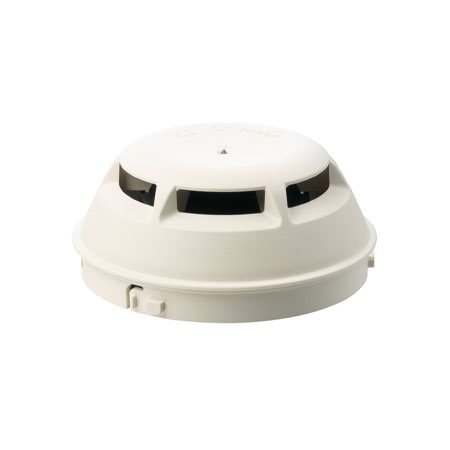
Smoke Detectors
A smoke detector is an electronic fire-protection device that automatically senses the presence of smoke, as a key indication of fire, and sounds a warning to alert occupants. Smoke detectors come in various types, including photoelectric detectors, which use different technologies to detect smoke particles in the air. These devices are essential for early fire detection, helping to save lives and minimize property damage.
Smoke detectors are available in a variety of models, including photoelectric detectors, which employ diverse technologies to identify airborne smoke particles. The basic principle for the majority of smoke detectors is a light sensor inside the detector which gets interrupted in the presence of smoke and enables an alarm. These instruments are crucial for prompt fire detection, contributing to the preservation of lives and reduction of property damage.

Features
Benefits
Early fire detection: Smoke detectors provide early warning of fires, increasing the chances of escaping unhurt and minimizing property damage.
Improved safety: Interconnected alarms and voice alerts help occupants quickly identify the location and type of emergency, allowing for a faster and more informed response.
Reduced false alarms: Smart detectors can distinguish between cooking fumes, shower steam, and real fires, reducing the number of false alarms.
Integration with other safety devices: Smart detectors can be combined with carbon monoxide detectors or integrated with other smart home devices for a more comprehensive safety system.
Use cases
Residential homes – Smoke detectors are essential for early fire detection in homes, helping to save lives and minimize property damage.
Commercial properties – Smoke detectors are crucial for fire safety in commercial buildings, such as offices, hotels, and retail spaces.
Public spaces – Large commercial and public spaces, such as theaters, shopping malls, and sports centers, can benefit from advanced smoke detection technologies, like laser-assisted infrared optical beam smoke detectors.
Smoke-free zones – Sensitive smoke detectors can be used to detect and deter smoking in banned areas, such as hospitals, schools, and public transportation.












